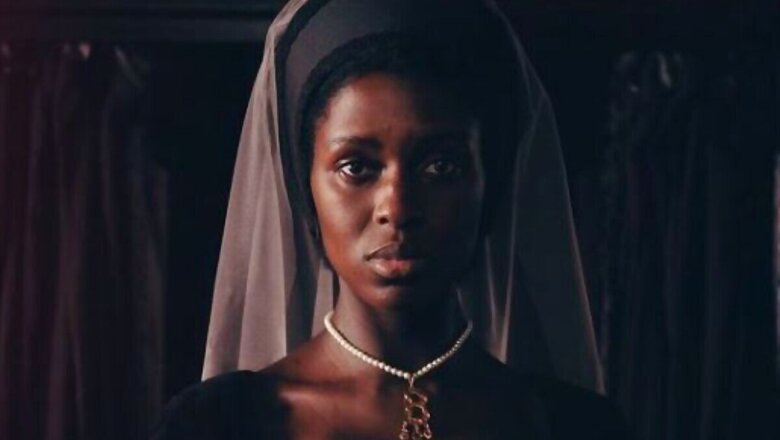
views
One doesn’t need to be well versed in history to know how the story of Anne Boleyn, the Queen of England and the wife of King Henry VIII, unfolded. Lynsey Miller’s three-part mini-series Anne Boleyn is just an ambitious attempt to bring the story forward and retell the historic events that shaped the course of England, through the Queen consort’s eyes.
The series starts off with the King (Mark Stanley) and Queen (Jodie Turner-Smith) rejoicing right after the death of King Henry’s first wife and provides a disclaimer that his heavily pregnant second wife, too, has a couple of months left to her life. Only, the Queen who is at the peak of her power and influence is yet to realise it.
One might argue that history has been unkind to her memory, as whenever we look back, we see a monarch whose image has been marred with accusations of being a homewrecker, being involved in adultery, and incest. The series, like most of the retellings of the story that we have previously seen on screen, stage or a book, shows us the woman who was an educated, smart and ambitious politician.
We see a mother trying hard to secure her daughter’s future after her imminent death, a queen who has failed to provide the king with a male heir, and women who can see power, love and respect slip through her hands. More importantly, we see a human – feeling all this desperation, and more.
So what new does this retelling offer?
Sadly, nothing that we already do not know. The influences of its predecessors come out once in a while, and one might have a hard time placing the heavily loaded and dramatised dialogues on the King and Queen consort of England of the 1500s. In an attempt to show her misery packed in three episodes, the series fails to bring forward the nuances of the great historical figure who remains one of the most important names in the political history of Britain.
However, it stands out in one aspect. The controversial choice of casting a Black woman in the Queen of England’s role did not sit well with many who screamed about historical inaccuracies, but a deeper look at the “othering” of Anne tells us how smart the casting was. The margin towards which Black people have been pushed, through ages, where they are devoid of power or authority, is the same margin one would generally find women on, especially at a time like the 1500s. In that regard, it is only fair that a retelling of an unapologetic woman’s story shows such an audacity in casting, and Jodie Turner-Smith does a brilliant job in portraying those nuances.
A less of historic reconstruction, and a more of an adaptation from the pages of history, the story of Anne Boleyn still finds relevance after 500 years. Despite lacking a fresh take on the first Queen of England to be executed, the series reminds us that a woman’s power and authority is fine as long as it aligns with the interests of the men in the scene. Once that purpose is served, or in Anne’s case where she failed to serve her purpose, even a firebrand person like her can be brought down in the blink of any eye.
As King Henry’s Chief Minister Thomas Cromwell reminded the pregnant Anne Boleyn in one of the episodes, “Your influence lies in your belly, not in your brain.”
Read all the Latest News, Breaking News and Coronavirus News here.



















Comments
0 comment